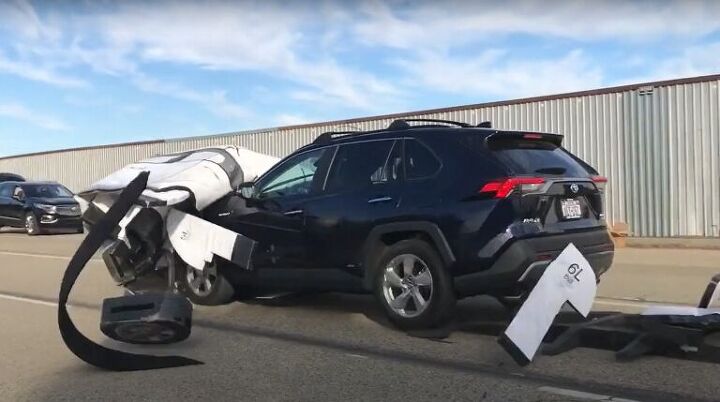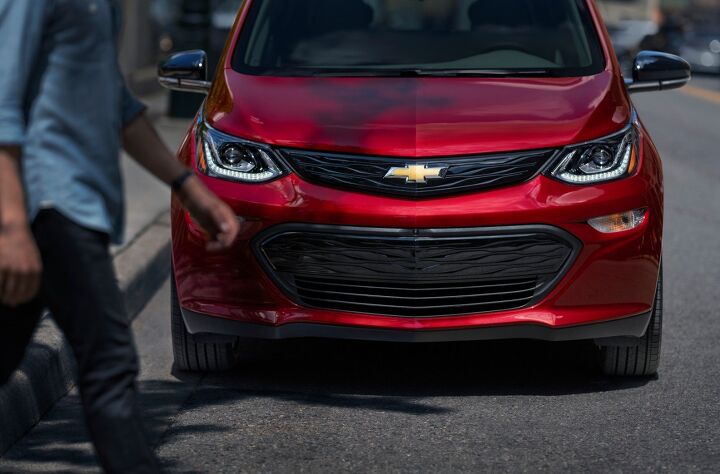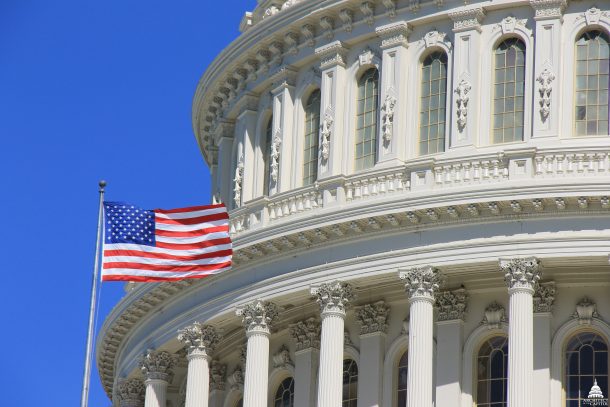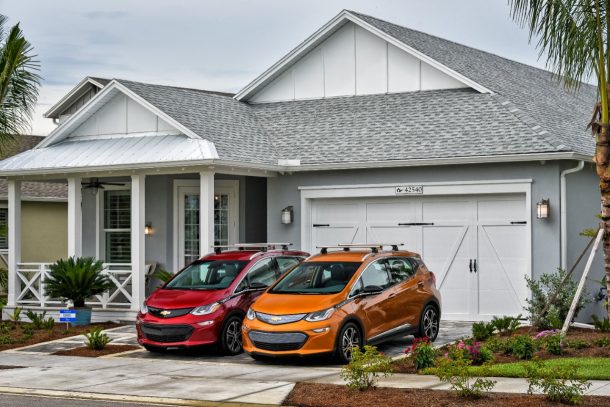#Safety
Rain or Shine: AAA Finds Out Advanced Driving Aids Still Suck
A new study from the American Automobile Association (AAA) has found that rain can severely impair advanced driver-assistance systems (ADAS). Similar to how highway traffic slows to a crawl when there’s a sudden deluge, modern safety equipment can have real trouble performing when a drizzle becomes a downpour.
On Thursday, the motor club organization released findings from closed-course testing that appeared to indicate some assistance suites had real trouble seeing through bad weather. AAA reported that 33 percent of test vehicles equipped with automatic emergency braking traveling collided with a stopped car when exposed to simulated rainfall at 35 mph. The numbers for automatic lane-keeping was worse, with 69 percent drifting outside the lines. Considering the number of times the people writing for this website have anecdotally criticized ADAS for misbehaving in snow, sleet, rain, fog, or just from an automobile being a little too dirty, it’s hard not to feel a little vindicated.
Chevy Bolt Fire Fix Allegedly Finalized
The Chevrolet Bolt has evolved from being General Motors’ superstar EV, radiating optimism for the company’s ambitious electrification strategy, to a public relations nightmare in relatively short order. While sales of the hatchback (and EUV) actually skyrocketed in Q2 of 2021, thanks largely to a diminished production output from the same period in 2020, shoppers are becoming aware of the fire reports and prolonged recall campaign that followed.
Another chapter has been added to that story, with GM now convinced that this will be the conclusion of the dejected tale. On Monday, the manufacturer issued an announcement that batteries for the Bolt had resumed production. But they won’t be coming out of the South Korean facility owned by LG Chem that’s been alleged as ground zero for the relevant defects. GM has instead elected to source the units from Michigan while LG improves quality assurance with the automaker peering over its shoulder, hopeful that customers will someday be able to use their car normally. Sadly, that moment still looks to be several months away.
The Chevrolet Bolt is Becoming Embarrassing for GM
If you’ve been following the Chevrolet Bolt, then you know it’s gone from a competitive front-motor, five-door all-electric subcompact to a tinderbox on wheels. Battery issues have resulted in numerous recalls while the associated fire risk is gradually making it the spiritual successor to the Ford Pinto flambé edition. Though, in fairness, the Bolt issue is nowhere near as devastating as those vintage Ford fires and pales in comparison to the General Motors’ own faulty ignition switch fiasco that left over 100 people dead.
It’s still leaving a bad impression, however, and GM’s latest decision (prudent as it might be) won’t be helping. As part of the recall campaign, the manufacturer has advised owners not to park the vehicle inside garages or close to buildings. It also has a charging protocol for customers to use to help minimize its risk of spontaneous combustion. Following yet another fire incident, GM has updated those recommendations and now advises drivers to park the Bolt at least 50 feet away from all other vehicles.
Twist: NHTSA Tesla Autopilot Probe Now Includes Other Automakers
The National Highway Traffic Safety Administration (NHTSA) has been doing a deep dive into Tesla’s Autopilot to determine if 765,000 vehicles from the 2014 model year onward are fit to be on the road. We’ve covered it on numerous occasions, with your author often making a plea for regulators not to harp on one company when the entire industry has been slinging advanced driving aids and distracting infotainment displays for years.
Apparently someone at the NHTSA either heard the blathering, or was at least of a similar mind, because the organization has expanded its investigation to include roughly a dozen other automakers.
NHTSA Identifies 12th Autopilot Related Crash Involving Emergency Vehicles
The U.S. National Highway Traffic Safety Administration (NHTSA) has identified another traffic incident pertaining to Tesla’s driver assistance features and emergency vehicles, making the current tally twelve. These wrecks have been a matter of focus for the agency ever since it opened a probe to determine whether or not Autopilot can handle hiccups in the road caused by scenes where flares, cones, disabled automobiles, and first responders coalesce.
Though concerns remain that Tesla is being singled out unjustly when there’s little evidence to suggest that other manufacturers are providing more capable systems. Tesla’s issues appear to be heavily influenced by irresponsible marketing that makes it seem as though its vehicles are self-driving when no manufacturer can make that claim. U.S. regulators now want to place more restrictions on vehicles boasting autonomous features and, thus far, Tesla has been behind on those trends. But it’s hard to support claims that they make vehicles safer when none seem as effective as they should be.
GM Upset With Battery Supplier, Expands Bolt Recall Again
On Friday, General Motors announced that its recall of the Chevrolet Bolt would result in a loss of $1 billion. But only after it expanded the campaign to encompass every electric vehicle it has produced. Rather than a single $800-million defect requiring fire-prone models to come back for repairs, GM is now confronting two problems and including Bolts (and Bolt EUVs) from 2019 onwards. The automaker has said this will necessitate an additional billion-dollar financial setback.
Keen to avoid being the recipient of the swelling public outrage, the manufacturer has been trying to shift criticism onto battery supplier LG Chem. The South Korean firm has been involved in numerous fire-related recalls pertaining to electric vehicles and GM would very much like to remind you of that, rather than take the blame for building and selling EVs that it’s advising customers not to charge too much or park anywhere near their home.
Ram Recall Encompasses 212,000 Pickups
Stellantis is recalling 212,373 Ram vehicles over issues relating to the side-mounted airbag inflators. Relevant safety reports were filed with the National Highway Traffic Safety Administration earlier in the month and describe circumstances somewhat similar to the nightmare that preceded the Takata airbag recall. Inflator components exposed to moisture may have a tendency to lose components or outright rupture, potentially spraying the interior with metal fragments.
The Ram inflators are believed to have been exposed to unnecessary levels of moisture during the manufacturing process, resulting in a weakening of the materials under pressure. FCA US (which is the name used on the NHTSA report, rather than the global Stellantis) started an investigation in December of 2020 after it had determined some pickups had been installed with side-curtain airbags with defective inflators. The company traced the issue all the way back to the 2015 model year.
Senate Infrastructure Bill Seeks to Make Breathalyzers, Interior Cameras Mandatory
The U.S. Senate is currently considering a $1 trillion bipartisan infrastructure bill that’s primarily targeting the ailing highway system, with tens of billions left over to spend on advancing the nation’s EV charging infrastructure and incorporating more eco-friendly modes of public transportation. But there’s also some really kooky shit that you need to be made aware of before this passes into law.
Along with new regulations that would mandate the inclusion of collision detection systems and automatic emergency braking, where the car calls your bluff and applies the wheel-stoppers independently of your actions, provisions have been made that would also require some kind of in-car breathalyzer. The stated aim is to reduce incidents of drunk driving. However, the proposed system may also include driver-monitoring cameras, totally undermining any nobility the cause might otherwise have had.
Opinion: Automakers Reinstating Nationwide Mask Mandates Is a Mistake
Detroit automakers and the UAW have elected to reinstitute national masking mandates for all of their facilities, starting Wednesday. General Motors, Ford, and Stellantis have issued a joint announcement clarifying that the rules are in accordance with the updated guidance from the Centers for Disease Control and Prevention (CDC) recommending masks be worn by all persons regardless of their vaccination status.
Based upon the text included in the release, the industry seems aware that the decision will be unpopular and is doing its utmost to transition responsibility without absolving itself entirely.
Ford Reintroducing Mask Requirements in Three States
For the last several nights it’s been impossible to turn on a screen and not encounter some besuited mouthpiece telling you that face coverings and social distancing will be the peak of fashion by this fall. In the real world, we’ve seen this mirrored by governments and businesses reinstituting COVID restrictions. General Motors even got out early and decided (with encouragement from the UAW) to bring back masking in Missouri.
Now it’s Ford’s turn.
UAW and General Motors Are Backing Mask Mandates Again
Despite American carmakers and the United Auto Workers abandoning mask mandates at the end of June, there’s been an about-face in Wentzville, Missouri. The state witnessed an uptick of cases, encouraging both the UAW and General Motors to reintroduce masks and social distancing protocols.
The facility is responsible for the GMC Canyon and Colorado, as well as Chevrolet’s Savana and Express. It’s also likely to be the first facility of many we’re assuming will be told it’s time to go back to the old masking rules. But why is this happening so soon after everyone was given the green light to return to normal operations?
NHTSA Cautions Against Leaving Chevrolet Bolt EVs Indoors
The National Highway Traffic Safety Administration (NHTSA) has issued an alert pertaining to Chevrolet Bolt owners, as the vehicles’ LG Chem battery packs could have a propensity to catch fire. On Wednesday, the safety organization recommended that the cars be left outdoors (ideally a healthy distance from anything flammable) and never left unattended while charging.
This defeats one of the largest perks of owning an electric vehicle (at-home charging), as customers will be required to buy extra-long cables and monitor their car outdoors for hours as it takes on energy. Owning a horse would be less work.
Mask Mandates Dropped By American Automakers, UAW
The COVID-19 Joint Task Force comprised of Detroit automakers and the United Auto Workers (UAW) has announced that it will be removing mask mandates for vaccinated employees. After meeting on Monday to discuss changes within state and federal health policies, the group decided masks should be made voluntary items for staffers. They could not get the rule change to coincide with the date the decision was made, however.
Lineworkers will instead be waiting until July 12th to pitch their masks in the trash bin so they can be deposited upon beaches and sea beds around the world. Of course, if a government agency (city, state, or county) wants to uphold old mandates or introduce new ones, the COVID-19 Joint Task Force said it would automatically comply. But that might not matter if employees have already decided to stop observing pandemic protocols.
Tesla 'Recalling' 285,000 Vehicles in China Over Autopilot Issue
The Chinese Communist Party seems to have it out for Tesla. Following bans that prohibited the brand’s vehicles from parking themselves anywhere near a military base, China’s government has decided to recall over 285,000 Tesla automobiles sold in the country. We’ve also seen state-run media outlets begin branding the automaker as irresponsible and arrogant amid consumer protests some are concerned might have been staged for political reasons. Though it’s painfully hard to get inside the head of the CCP while you hope for concrete evidence of any of the above. Propagandizing and censorship have reached a level where just about everyone is having difficulties distinguishing up from down.
What is certain, however, is that Tesla’s regional volume has taken a noteworthy hit in 2021 despite sales more than doubling the previous year. While this may have nothing to do with the bad publicity and recall campaigns, we’re betting the latest example — which pertains to customers misusing Autopilot — won’t help matters.
IIHS Claims Marijuana Legalization Causes Crashes
It’s always nice to get a break from the endless stream of industry marketing materials about electrification, though this week’s impromptu theme still involves going green. Following news that General Motors is considering changing its drug testing policies to exclude marijuana, there has been heavy coverage of an Insurance Institute for Highway Safety (IIHS) study claiming states that have legalized recreational use of cannabis are seeing more crashes.
But the framing seems wildly irresponsible as it fails to highlight the problem being heavily tied to individuals operating a vehicle under the influence of marijuana and alcohol combined. It’s more or less what the IIHS attempted to do in 2018 with help from the Highway Loss Data Institute (HLDI). Our guess is that the duo is seeking out fresh reasons for insurance companies to raise rates in regions that have legalized pot because even their own research complicates the issue.


























Recent Comments